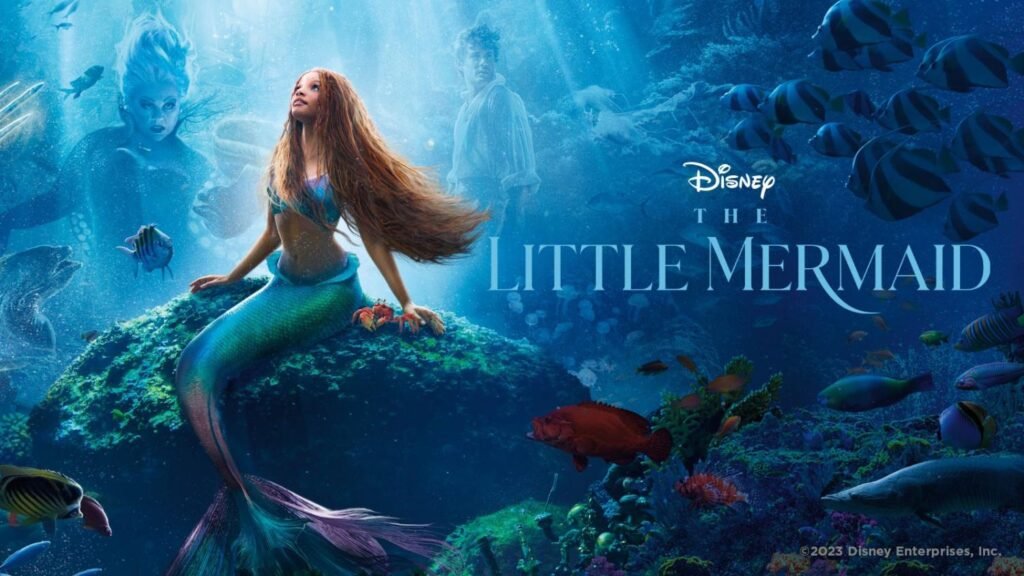Disney’s animated film, The Little Mermaid, released in 1989, remains a global classic even after so many years. However, there has recently been much debate over Disney’s decision to cast a Black actress to portray the iconic character of Ariel in a live-action adaptation. Having Ariel as Black in the live-action film has brought up concerns regarding authenticity, historical accuracy, and the portrayal of fictional characters in popular media.
One of the biggest arguments against casting Ariel as a Black character is the issue of authenticity. The original character of Ariel, as created by Hans Christian Andersen and further popularized by Disney’s animated version, was depicted as a young, fair-skinned mermaid with bright red hair. Critics argue that altering the character’s racial appearance detracts from the story’s authenticity and may not fully respect the source material’s original vision. In an interview with Screen Rant, Disney historian Didier Ghez argued The Little Mermaid is an adaptation of a European fairy tale and casting Ariel as Black could undermine the essence of the story. He believes adaptations should strive to remain faithful to the narrative to avoid fans of the original feeling alienated.
Critics also raise concerns about historical accuracy when changing the race of an established character. The story of The Little Mermaid is rooted in a European setting, so some argue that introducing a Black character in a primarily European-inspired location might lead to anachronistic and historically inaccurate representations. Film critic Noah Berlatsky discussed this issue in a blog post for NBC News. He argued that while racial diversity in media is essential, altering the race of iconic characters might be more appropriate in original stories or those not grounded in a specific cultural or historical context.
Another concern surrounding the casting decision involves the potential reinforcement of racial stereotypes. If Ariel’s portrayal as a Black character is not handled carefully, it could unintentionally perpetuate negative stereotypes or reduce a rich and diverse culture to just a token representation. Critics worry that a superficial approach to diversity based on potential profits may undermine the importance of genuine representations of various ethnicities and their cultures. A discussion on this issue by Alyssa Rosenberg in The Washington Post emphasizes that real progress comes from creating original and well-developed characters from various backgrounds rather than replacing established characters with new racial identities.
While casting a Black actress to portray Ariel has not gotten a wholly positive reaction, perhaps it is not unfavorable. One of the positive aspects of casting Ariel as Black in the Disney live-action adaptation of The Little Mermaid is the opportunity it provides for increased representation and diversity. In an era where audiences are increasingly advocating for more inclusive storytelling, featuring a Black actress as the iconic mermaid can be seen as a step towards breaking traditional racial barriers in popular films. As scholar Darnell Hunt noted in his research on diversity in Hollywood, authentic and diverse representations in media can foster a sense of empowerment and belonging, encouraging positive impressions of different communities. By providing a platform for a talented Black actress to portray such an iconic character, Disney demonstrates its commitment to celebrating racial diversity and promoting inclusivity in its storytelling.
I would say that while inclusivity is imperative, in this day and age, live adaptions are just recreating a story but with real people. That means looks should be preserved as much as possible. Inclusivity comes from the original stories, where the primary creators add Black characters of their own volition, not from the minds of corporations attempting to maximize profits by hitchhiking on the “inclusivity” train. Changing the characters to a different race under the pretense of “inclusivity” disrespects the original author. Furthermore, it can also be a form of introducing biases to media further.
Anyone can agree that racial diversity and representation in media are essential, but the decision to cast Ariel as Black in the Disney live-action adaptation of The Little Mermaid has elicited mixed reactions. Critics argue that altering a character with a well-established racial identity can raise concerns about authenticity, historical accuracy, and the potential for reinforcing stereotypes. However, some may argue that it represents a step towards inclusivity and reflects the evolving values of our society. Filmmakers must approach issues of representation with sensitivity and respect for cultural backgrounds, ensuring that characters are thoughtfully crafted to embody diversity authentically. By doing so, creators can set new standards for representation and foster a more inclusive entertainment industry.
Works Cited
“Screen Rant.” “Disney Historian Doesn’t Think The Little Mermaid’s Ariel Should Be Black.” Screen Rant, 24 Jul. 2019.
Berlatsky, Noah. “Opinion: Ariel casting controversy is about more than just a Disney character.” NBC News, 8 Jul. 2019.
Rosenberg, Alyssa. “Ariel is a fictional character. Why not imagine her a different way?” The Washington Post, 5 Jul. 2019.
